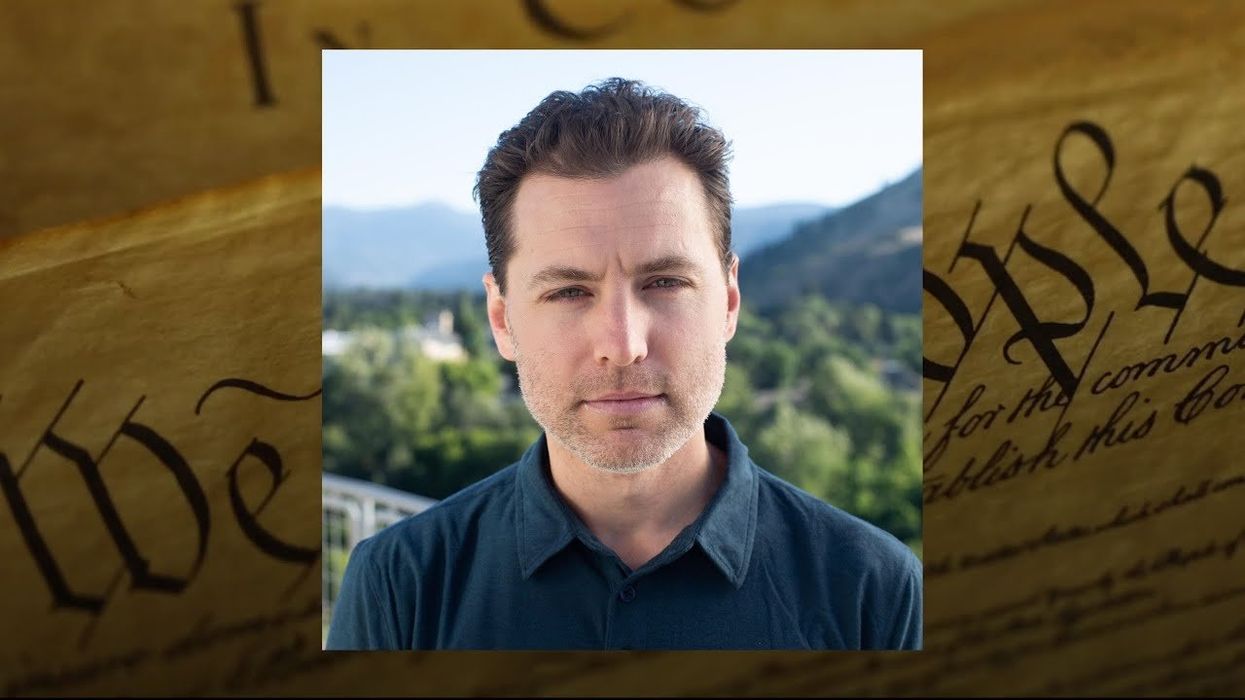The Fulcrum presents The Path Forward: Defining the Democracy Reform Movement. Scott Warren's interview series engages diverse thought leaders to elevate the conversation about building a thriving and healthy democratic republic that fulfills its potential as a national social and political game-changer. This initiative is the start of focused collaborations and dialogue led by The Bridge Alliance and The Fulcrum teams to help the movement find a path forward.
The latest interview in this series features Ben Bain, Director of State Capacity at the Niskanen Institute and Volunteer Coordinator in Washington, DC, for More Perfect Union, a bridging organization—where we originally met.
It’s nearly impossible to engage in politics right now without encountering the “Abundance” agenda. While not new, the concept has gained traction through the bestselling book by Ezra Klein and Derek Thompson. Aimed at a progressive audience, the central argument is that liberals should prioritize a politics that delivers tangible results—largely by building more infrastructure and removing barriers, such as excessive regulation, that hinder development. Some conservatives argue they’ve long championed such an agenda, and indeed, many conservative-led states have seen notable development in recent years.
Regardless of who lays claim to the abundance framework, it has sparked a lively policy debate—especially in Washington, DC. Organizations like YIMBY are advocating for the expansion of this conversation to the local and state levels. Regardless of one’s views on its specifics, the abundance debate taps into a growing desire for government to work more effectively. This urgency is fueled in part by the 2024 election, which many interpreted as a repudiation of the status quo—a message from voters frustrated by a government they feel doesn’t serve their everyday needs.
That said, the conversation about abundance often feels disconnected from the pro-democracy community, which tends to focus on safeguarding democratic norms, bridging partisan divides, and addressing structural reforms. This raises a real question: would the energy of the pro-democracy community be better spent on effective governance? Or, more optimistically, is there room for greater alignment between the two?
I wanted to speak with Ben because his work straddles both worlds—effective governance and democratic integrity. I’m curious whether the apparent divide between movements focused on delivery and those focused on democratic values is real, or whether we can do more to bridge it explicitly. Ben’s reflections offer a compelling starting point for that conversation.
Ben’s main reflections included:
- There are tensions between participation and speed: As I’ve previously explored in this series, one of the challenges we face in this community is an inability to define democracy itself. Ben noted this by articulating the trade-off between “speed, outcomes, and expertise, versus participation, deliberation, and accountability.”
This isn’t to say that either people participate, or you have government authorities make all decisions (which might be the definition of authoritarianism. But there are trade-offs, which should be elevated. As Ben notes,” Maybe you don't get full deliberation with the public, or if you want to rely on expertise. So..smart people have trained all their lives in some very specific subject. If you balance that with the need to hear the opinions and views, rightful views of everyday Americans that might be impacted by a decision. Those can be intentional.” - Trust in government should be a north star: A potential bridge between the good governance and pro-democracy communities is a shared commitment to restoring trust in government. While declining institutional trust may be understandable, it has far-reaching implications—well beyond frustration with bureaucratic inefficiency.
As Ben articulates, “You have to make a government that does more and does better. And then, at the same time, you need to be able to tell that story effectively, and then bring people along so that they understand, and then you offer them ways to engage, which is then going to build trust…And you're only focusing on one, you're not going to get the outcome that you want.
You can't just say trust in government and just say that over and over and over again and bring people together. That doesn't happen by itself- you have to deliver.
- We can work towards better participation: While trade-offs exist between efficiency and participation, there is also significant room to improve how people participate. Beyond voting—which remains overly focused on national elections that most individuals can’t meaningfully influence—it is often difficult for citizens to make their voices heard. At times, the loudest voices dominate, reinforcing the very dynamics the abundance agenda seeks to overcome (such as NIMBYism).
Ben emphasizes the need to reimagine participatory processes “How do you get people more engaged and then trust in the process as they participate in it? I think that's an area that that needs to be completely transformed. And I think technology will go a long way. Technology is not the answer to everything. But I think technology can and should be playing a significant role.
How do we reimagine this sense of public input and deliberation into political processes? What does that look like without slowing things down? Ideally, it would both speed things up and make it more effective because it would have more genuine input. And I think that's possible. I think we can have both. We just must get creative and really try to try to do some new things.”
I appreciated Ben’s reflections and hope that they can help lead to broader collaboration between the effective governance and pro-democracy communities.
Scott Warren is a fellow at the SNF Agora Institute at Johns Hopkins University. He is co-leading a trans-partisan effort to protect the basic parameters, rules, and institutions of the American republic. He is the co-founder of Generation Citizen, a national civics education organization.




















Trump & Hegseth gave Mark Kelly a huge 2028 gift